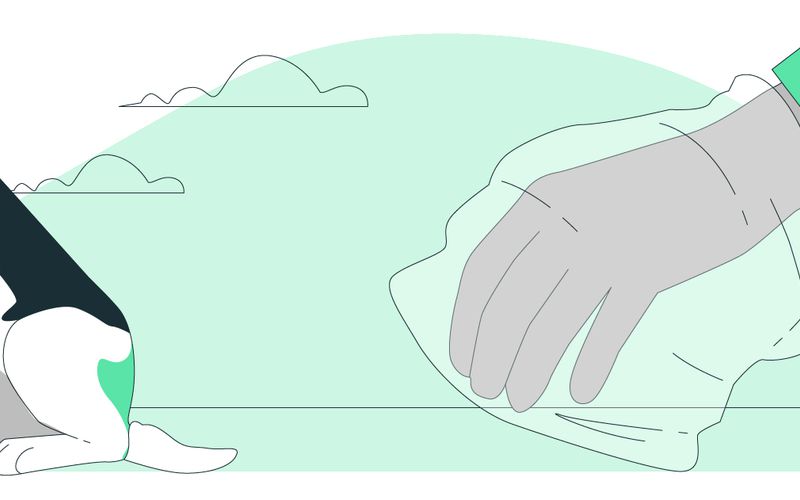

Faecal Antigen Testing: Diagnosing Pet Infections Earlier
Advances in science and technology, like faecal antigen testing, have strengthened parasite diagnostics, leading to significant improvements in the scope and accuracy of faecal testing results.
This is welcome news, given that the faecal flotation test is more than 100 years old and hasn't changed much during that time, often producing false negatives. Veterinary practices may also use direct smear or wet-mount evaluation of stool, but these methods are typically even less accurate than faecal floats.
What Is Faecal Antigen Testing?
Testing antigens offers a newer, more accurate means to detect parasite proteins, according to the Companion Animal Parasite Council (CAPC). The primary job of antibodies, made by the immune system, is to attack antigens. This test method uses antibodies to detect specific proteins that are unique to certain organisms. The sought-after protein is secreted or excreted by a parasite within the intestinal lumen of the animal infected with it, independent of egg production by that parasite. The fact that faecal antigen testing does not require the identification of eggs is a critical feature of its success as an accurate screening test for infected dogs or cats that are not symptomatic or that may be showing a variety of clinical signs that could be associated with parasite infection.
Here are a few reasons why antigen testing is superior to other testing methods.
Identifies a Broad Range of Parasites
Vets use faecal antigen tests to detect parasite proteins. There's a misconception that this method of testing is only used to detect Giardia; in fact, the list of parasites this test can detect is much broader in scope.
Unique proteins within a pet's faecal sample will identify roundworm, hookworm and whipworm infections. Excluding protozoa and insects, those three parasites alone accounted for approximately 90% of positive parasite test results, based on data collected in 2016 from IDEXX Laboratories.
Even more welcome news is that, soon, this list of identifiable parasites will include flea tapeworms. Antigen tests provide the bandwidth necessary to identify a variety of parasites, not just Giardia.
Diagnoses More Infections Earlier
Unlike faecal flotation, which relies primarily on identifying eggs, faecal antigen tests can detect parasite infections during the pre-patent period. This advancement means the eggs don't have to be released for the infection to be detected.
Some of these periods can be quite long. For example, the pre-patent period for hookworms is between 14 and 21 days, and for roundworms, it lasts roughly 21 to 35 days. For whipworms, it's significant, at 74 to 90 days, according to the CAPC. A more sensitive test than faecal flotation is critical, especially considering that a symptomatic whipworm infection can mimic Addison's disease. It could even resemble similar clinical pathological abnormalities, such as hyperkalaemia, hyponatraemia, eosinophilia and anaemia. When parasites are detected earlier, vets can provide immediate courses of treatment to minimise the infection. Stressing the importance of establishing a diagnostic baseline, including faecal testing, helps improve the chances of finding and treating infection earlier.
Avoids False Negatives
Single-sex parasite infections can occur in pets and cause clinical signs. However, when only one sex of the parasite is present within an animal, eggs will not be produced, so a faecal flotation would result in a false negative. Faecal antigen testing can detect these infections because key proteins are released by both male and female parasites, regardless of whether or not the opposite sex is present.
The test's success is due to the fact that it does not need to identify eggs, only antigens, which are secreted or excreted by a parasite within the intestinal lumen of the infected animal. It is a much more accurate test than a faecal float for screening asymptomatic infected pets or pets presenting a variety of clinical symptoms. Furthermore, parasites may undergo intermittent egg shedding, which is yet another scenario that could lead to false negative faecal floats as, if no eggs are being shed, the infection cannot be detected.
Finally, faecal flotation tests can often miss dense eggs that are too heavy to float: typically, whipworms and proglottid segments of flea tapeworms.
Communicating the importance of testing alongside effective parasiticide control is critical for effective preventive care. Faecal testing for parasites is also an essential part of the evaluation of pets presenting with signs of gastrointestinal disease. Appropriate courses of treatment can limit clinical signs, as well as the zoonotic risk associated with each parasite. Using faecal antigen testing to identify a spectrum of parasite infections earlier and with greater accuracy means pet owners will receive the most comprehensive evaluation of their pets and pets can get better care.







